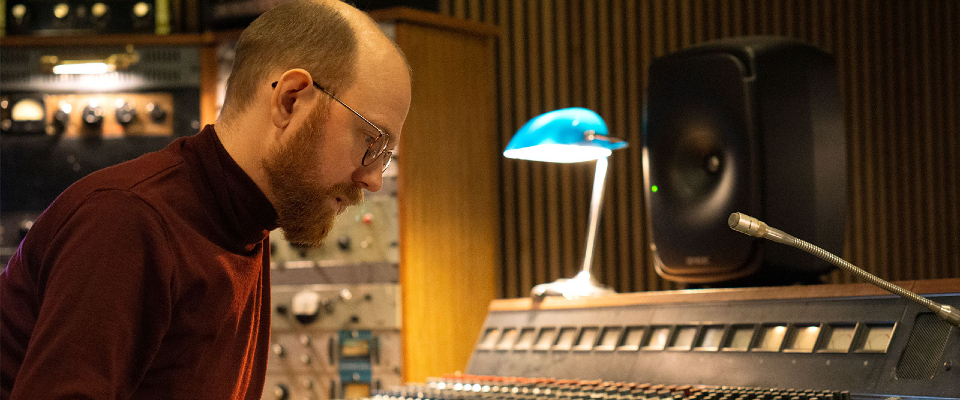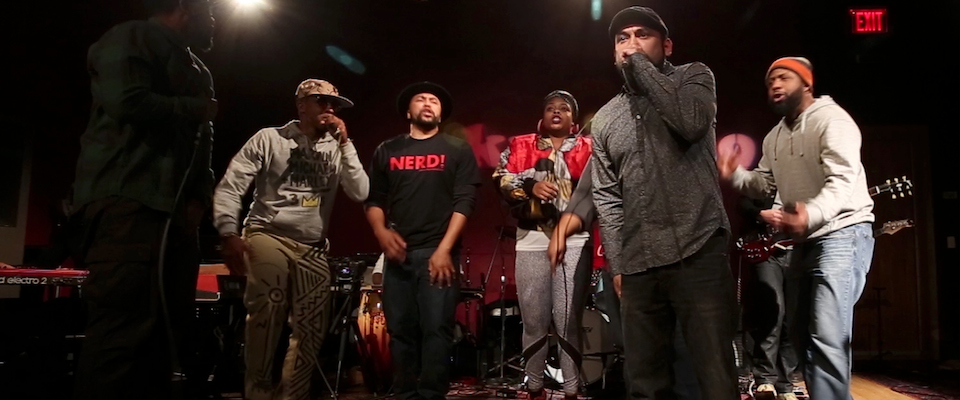Photo by Jason Arthurs
A good tune is a good tune. A great pop song’ll shine through studio glitz just as easily as it does through all the bedroom rockin’ scuzz and fuzz that’s been so in vogue in this new century of indie rock. North Carolina native Stuart McLamb certainly knows that. He’s the fella pullin’ the strings on The Love Language. It’s project that began in his folks’ house, and, with the third record coming out next month, it’s come into full flower in the studio on the strength of McLamb’s outstanding pop sense.
In the late aughts, McLamb was licking his wounds after the double-break-up-whammy of his girlfriend and his old band. The frustration manifested itself in the The Love Language, his debut 2009 record under the new moniker. It’s a lo-fi affair, with all the crackles and hisses and over-driven vocals you’d expect from a four-track recording. But McLamb’s strength as a pop songwriter still shimmers, and after the album’s release, some folks started to take notice. McLamb gathered up a band to back him up live when fellow North Carolinians the Rosebuds invited McLamb to open up for them, and their label Merge–based just down the road from McLamb in Durham–invited The Love Language onto their roster. McLamb assembled another version of The Love Language, and enlisted the help of producer/engineer BJ Burton (who would become a collaborator of sorts for McLamb) for his excellent 2010 sophomore disc Libraries.
Three years, and a few more iterations of the band’s live line-up, McLamb and Burton gathered at Raleigh community art space Ruby Red to record some demos for what would become The Love Language’s third record. Even though McLamb relocated (Burton picked up stakes himself, and moved to the Midwest–leaving McLamb back in sole charge of the band) to more remote environs of Black Mountain, N.C. to finish up the record, he borrowed the art space’s name for the title of the record. Ruby Red (out July 23 on Merge) finds McLamb leaving his lo-fi roots far in the rearview mirror–a process that began with Libraries. The added fidelity lets the pop vision that McLamb set down in his bedroom debut become a reality. It’s a lush record, full of psych-rock swirls and post-punk texture, and you can hear it from the first note of the album’s lead track, “Calm Down.” The added fidelity lets the pop vision that McLamb set down in his four-track-debut become a reality.



